The image of a good business is important more than ever today. Customers, competitors and stakeholders observe companies on numerous online sites. Business reputation management solution are now necessities.
They assist businesses to monitor, guard and enhance their online reputation. Business reputation management tools allow a business to view when they have been referred to, and respond to comments, and even have control over their online image. A quick look at telecom expense management companies can also help improve business efficiency. A good use of these tools can go a long way in assisting a business to draw new clientele, retain the existing ones and expand in a competitive market.
Define Business Reputation Management (BRM)
A business reputation management is an arrangement to monitor, mold, and influence the manner in which a business is perceived by its clients in a variety of online and offline situations. It involves monitoring the use of online mentions, managing customer reviews, correcting online negative ones, and publishing positive stories about the brand.
New Business reputation management tools involve AI, sentiment analysis and real-time monitoring, which provide companies with clear information on how their brand is perceived. They closely monitor social media, review sites, news media and forums where customers discuss products and services.
The management of a good reputation requires active management, articulate crisis management strategies, and uniformity in the brand messages that reflect the values of a company and what the customers are anticipating.
Why Business Reputation Matters
Long-term success depends on a good reputation. It influences customer selection, investor emotion and market position of a company. Good reputed companies enjoy benefits which increase their sales and enable them to expand in the long run.
- Trust: Customers prefer to conduct business with companies they believe are reliable, honest and will never fail to produce quality products and services.
- Revenue: Strong reputation will translate to increased sales as people will be ready to spend more on the brands they trust and respect.
- Talent: good employees seek employment in a good organization. This allows such companies to recruit and retain the most competent individuals to develop.
- Partnerships: A positive reputation allows a company to get allies, joint ventures and other collaboration with reputable companies.
- Strength: A strong reputation not only helps a business to ride through the rough moments, but it also becomes an easier ride through crisis situations and negative publicity.
Key Components of Reputation Management
Reputation management is multidimensional and should handle different sides of brand perception and communication with the stakeholders. The modern Business reputation management tools combine all these components into single-purpose platforms.
- Monitoring: Ongoing tracking of online mentions, reviews, social media discussions and news reports are used to keep the business on top of what the people are thinking.
- Response: A prompt and a correct response to customer feedback, complaints, and inquiries serves as an indication of customer satisfaction and relationship building.
- Content: The development and dissemination of positive content strategically can be used to form brand narrative and neutralize negative information found in search results.
- Analytics: Data-driven insights from reputation metrics enable informed decision-making and strategy optimization for maximum impact on brand perception.
- Prevention: Crisis preparedness and prevention measures assist organizations in preventing the damage of their reputation and respond favorably in case a problem hits the organization without prior notice.
Common Challenges in Reputation Management
There are numerous challenges to organizations in keeping and enhancing their reputation on the internet. The knowledge of these complications can aid companies in developing superior strategies based on the business reputation management tools.
- Volume: there is so much online discussion and mention that it is impossible to view everything manually. Automated solutions are required to take all that.
- Speed: Negative information spreads quickly across digital platforms. It must be stopped before it goes out of hand and causes huge damage.
- Platforms: There are numerous platforms that act as an obstacle to brand messages such as social media, review sites, forums, and news outlets.
- Resources: The availability of limited resources such as staff and budget may prevent organizations to utilize complete reputation management strategies in all the channels that may be required.
- Authenticity: To distinguish between the genuine feedback of the customer and the false reviews, it requires intelligence tools and expert knowledge to evaluate.
Top 10 Tools for Reputation Management
1. Reputation.com
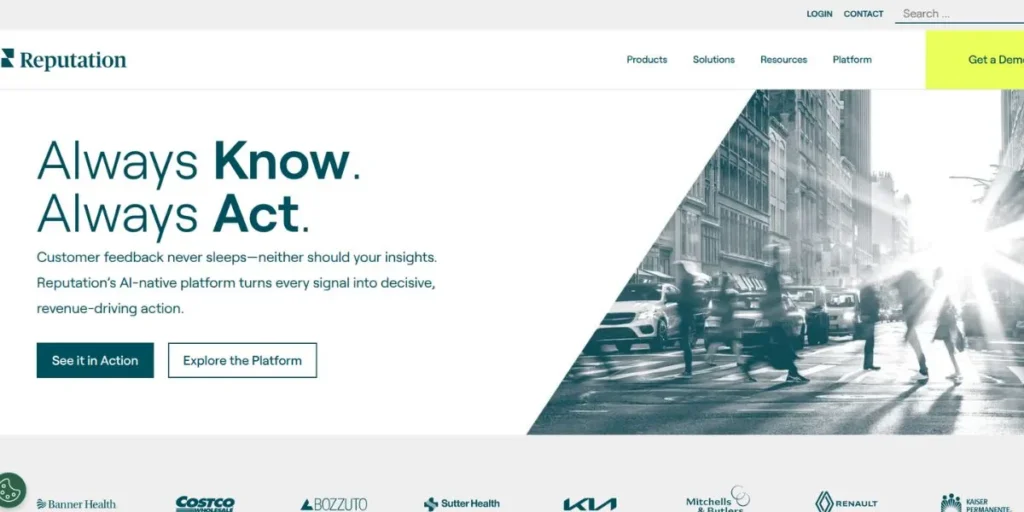
Website: https://reputation.com/
Reputation.com is one of the leading providers of business reputation management tools that can assist companies to control their online presence. It provides total solutions to the companies that would like to see and enhance their web presence. The platform applies sophisticated AI and human beings to provide real-time information regarding the reputation of a company on a wide range of online platforms.
Businesses leverage it to monitor consumer reviews, manage customer feedback and build their brand image through data-driven approaches. Its mighty analytics enables businesses to identify trends, how people feel, and make their reputation work better. Reputation.com assists thousands of businesses worldwide to help strengthen their relationships with customers and partners by operating the online reputation of their companies.
Key Features:
- Real-time monitoring
- Review management
- Social listening
- Sentiment analysis
- Crisis alerts
Pros:
- Comprehensive coverage
- AI-powered insights
- Enterprise scalability
Cons:
- Premium pricing
- Complex setup
- Learning curve
Pricing: Custom pricing
2. Sprout Social
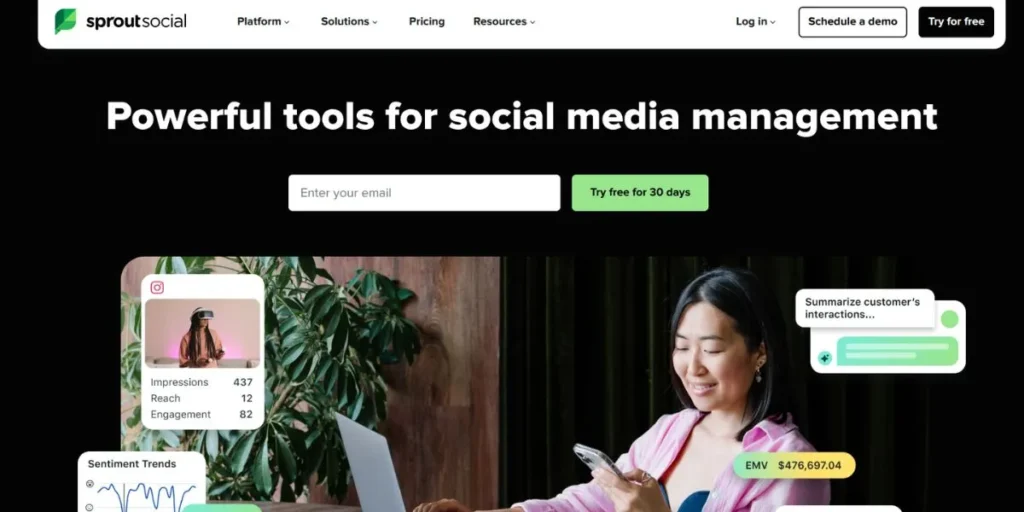
Website: https://sproutsocial.com/
Sprout Social provides potent resources to handle the publicity of the business with its complete social media platform that functions across all sizes of business. It monitors social media, allows individuals to connect and processes information in order to maintain a positive image of a brand on online platforms. Sprout Social enables companies to understand when their brand is mentioned or when customers are asked questions and to view how people feel about them.
It is straightforward and provides understandable reports, which makes it easy to use by marketing teams requiring complete social media reputation management. Sprout Social assists firms to establish genuine relationships with their followers and secure and enhance their web presence or image through intelligent social media interaction.
Key Features:
- Social monitoring
- Engagement tools
- Analytics dashboard
- Team collaboration
- Publishing scheduler
Pros:
- User-friendly interface
- Strong analytics
- Team features
Cons:
- Limited platforms
- Expensive plans
- Feature restrictions
Pricing: $199 per seat/month
3. Podium
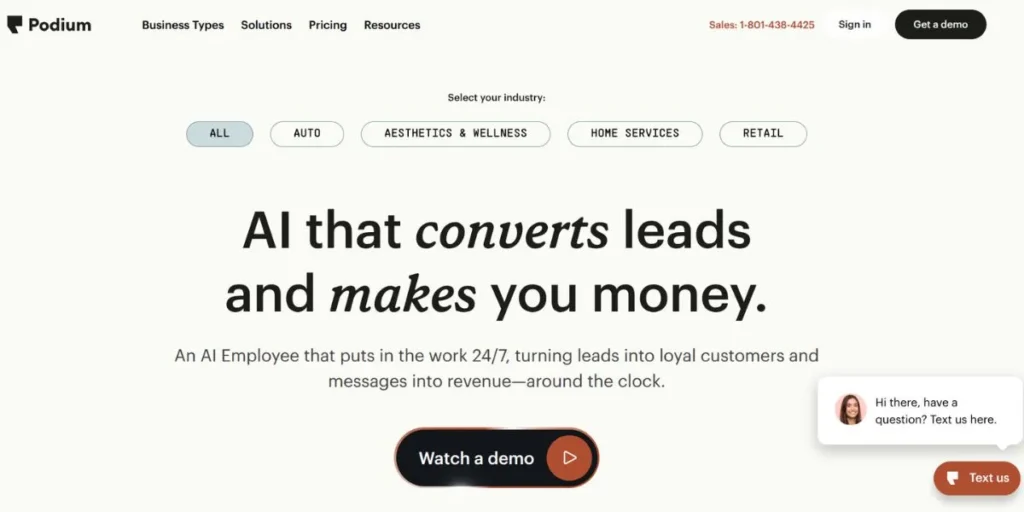
Website: https://www.podium.com/
Podium is oriented to local companies that require straightforward solutions to managing reputation by means of messaging and reviewing. This business reputation management tools site relies on text messages, webchat and review requests to assist businesses to enhance their appearance on the internet. Podium helps local service providers and retailers make customer conversations easier, more likely to get a good review, and resolve issues faster.
The system integrates with the tools that a business already has in place to develop clear workflows on reputation work. With the customer being turned into positive reviews and testimonials, Podium helps to increase local credibility with clarity and communication instruments.
Key Features:
- Text messaging
- Review invitations
- Webchat integration
- Customer communication
- Local SEO
Pros:
- Local focus
- Easy implementation
- Mobile-friendly
Cons:
- Limited scope
- Basic analytics
- Pricing structure
Pricing: Custom pricing
4. Birdeye
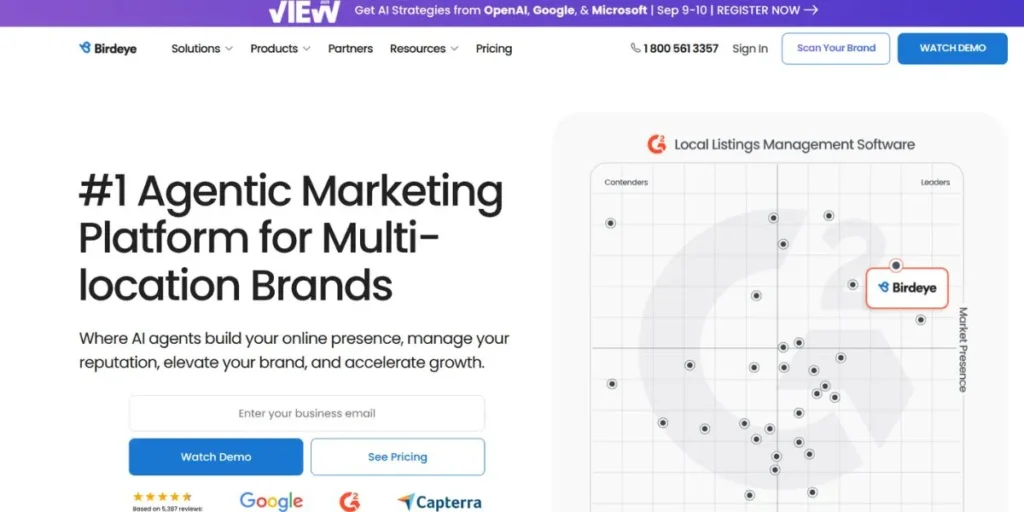
Website: https://birdeye.com/
Birdeye provides complete business reputation management tools to multi-location companies and franchises that desire one location to manage their reputation. The platform inquiries automatically regarding reviews, verifies the feelings of people and controls the customer experience on numerous review and social platforms. Birdeye is used by businesses to ensure that their brand name remains high in all their outlets as well as gaining knowledge on customer satisfaction changes.
Automation reduces the number of people working and ensures that feedback and review responses are timely. Birdeye enables the organizations to increase their reputation building efficiently, yet they can add the personal touch to the interactions with the customers.
Key Features:
- Multi-location management
- Automated workflows
- Customer surveys
- Competitive analysis
- Integration capabilities
Pros:
- Franchise-friendly
- Automation features
- Comprehensive coverage
Cons:
- Complex pricing
- Setup complexity
- Feature overlap
Pricing: $299-$389 per month
5. Yext
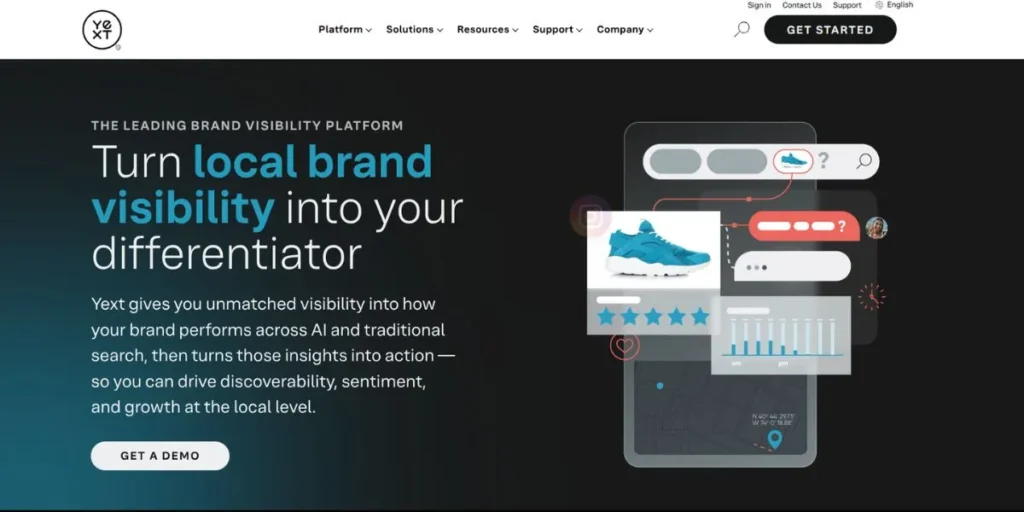
Website: https://www.yext.com/
Yext assists companies to manage how they are represented online particularly in local search results as well as store listings. It maintains the business information in the directories, maps and search engines and verifies what individuals say online. Organizations rely on Yext to maintain a consistent brand identity on the internet that helps prevent the confusion of customers and leaves them feeling improved.
Its numerous publishing partners and the possibility to implement changes immediately is the most positive aspect, however. Using Yext, companies coordinate their presence on the internet, increase their appearance in local online searches and develop consumer confidence.
Key Features:
- Directory management
- Local search
- Analytics reporting
- Review monitoring
- Knowledge management
Pros:
- Directory coverage
- Local optimization
- Real-time sync
Cons:
- Limited social
- Pricing tiers
- Learning curve
Pricing: Custom pricing
6. Trustpilot
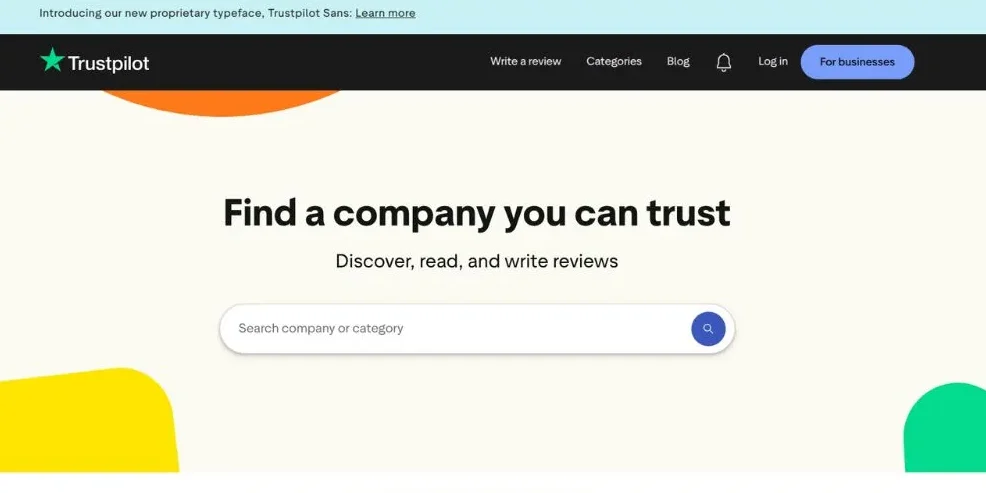
Website: https://www.trustpilot.com/
Trustpilot is a Web site and a complex of tools that enable businesses to cope with their image. It allows firms to gather, sort, and present customer comments. Trustpilot is used by millions of businesses to create credibility and trust in real customer feedback. They utilize the tools to collect reviews, process the data, and get to know about their reputation.
This assists them to make products better, demonstrate transparency, and keep in touch with reviewers. The tools also enable businesses to leverage customer responses to a competitive edge and establish a long term trust based relationship.
Key Features:
- Review collection
- Trust indicators
- Analytics insights
- API integration
- Widget customization
Pros:
- Brand recognition
- Customer trust
- Global reach
Cons:
- Platform dependency
- Limited control
- Review authenticity
Pricing: $299 per month, per domain, billed upfront annually
7. ReviewTrackers
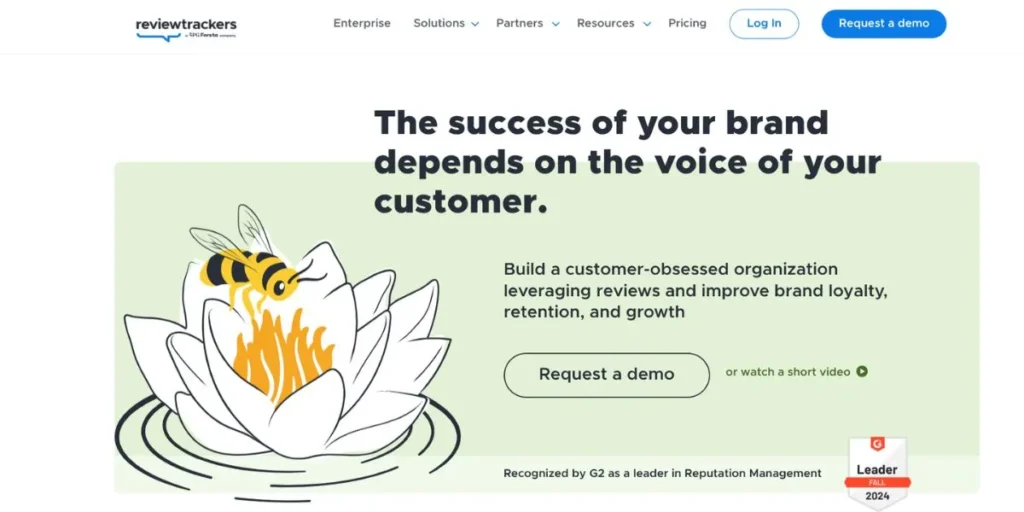
Website: https://www.reviewtrackers.com/
ReviewTrackers are business reputation management tools, which are specialized in the process of monitoring and managing reviews on key review sites and social networks. It provides businesses with a clear view of trends in customer feedback, competitor comparisons and reputation insights with easy to read dashboards. ReviewTrackers help companies to monitor the performance of reviews, recognize areas where they can improve and provide feedback to customers in a way that is both appreciative and considerate.
The notification system helps the businesses to know of any significant reviews or discussions that might have had an impact on their reputation. ReviewTrackers converts customer reviews into valuable business concepts and maintains a positive business rapport with the audience by providing responsive customer service.
Key Features:
- Review aggregation
- Competitive benchmarking
- Alert notifications
- Sentiment tracking
- Response management
Pros:
- Review focus
- Competitive insights
- Notification system
Cons:
- Limited scope
- Basic features
- Pricing structure
Pricing: Custom price for per location per month paid annually
8. BrightLocal
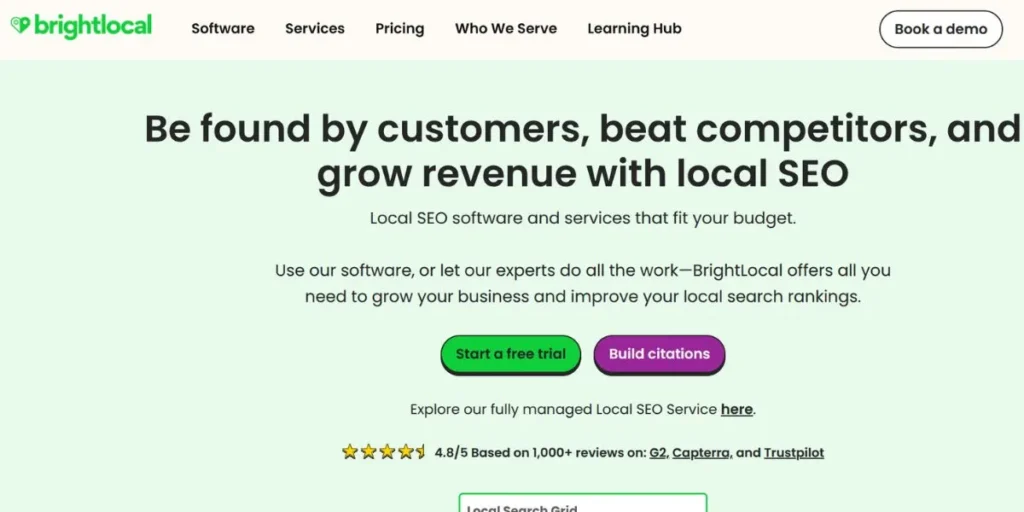
Website: https://www.brightlocal.com/
BrightLocal provides the business reputation management tools to assist local businesses and marketing agencies in handling their online reputation. The platform combines local search with reputation-tracking capabilities to ensure that the business is more visible in the local search and that the customers are more likely to regard it favorably. Improving results via BrightLocal, agencies provide their clients with full reputation services and monitor results.
BrightLocal also allows agencies to add their brand to the tools. It is aimed at assisting businesses in the local market to win by increasing their presence online.
Key Features:
- Local SEO
- Citation tracking
- Review monitoring
- Agency tools
- White-label options
Pros:
- Local expertise
- Agency features
- Affordable pricing
Cons:
- Limited enterprise
- Basic social
- Feature gaps
Pricing: $29 per month
9. Qualtrics ORM
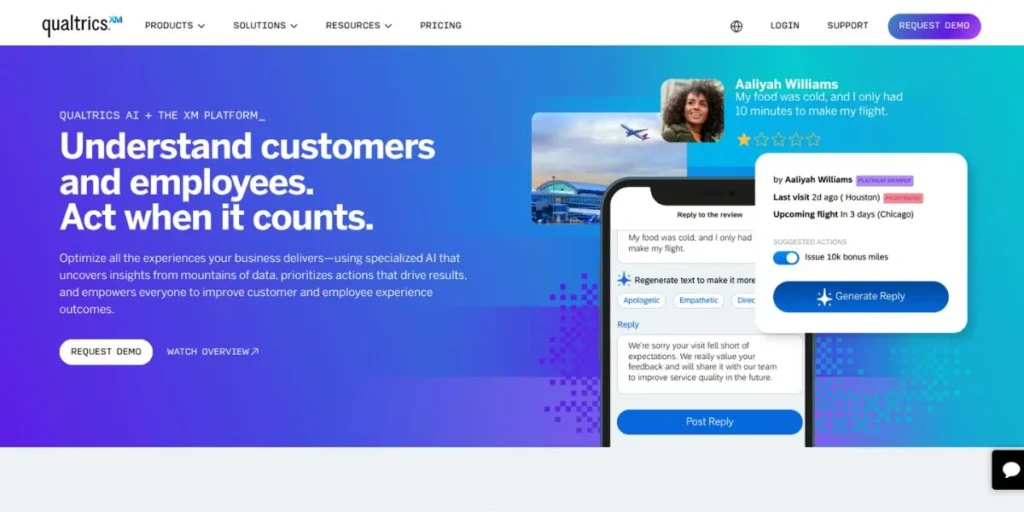
Website: https://www.qualtrics.com/
Qualtrics provides large corporations with the means of business reputation management tools. It works with the help of state-of-the-art data analysis and machine learning to demonstrate how consumers think of a brand across all online platforms. It allows big companies to determine what influences their reputation, identify potential issues and develop data-driven strategies to make their brand even stronger.
Its research processes provide reliable sentiment analysis and practical measures that can advise leaders to make decisions. Qualtrics connects reputation work to bigger customer experience programs with stronger analytics.
Key Features:
- Advanced analytics
- Predictive insights
- Enterprise integration
- Customer experience
- Research methodology
Pros:
- Enterprise focus
- Advanced analytics
- Integration capabilities
Cons:
- High complexity
- Premium pricing
- Implementation time
Pricing: Custom pricing
10. ReviewFlowz
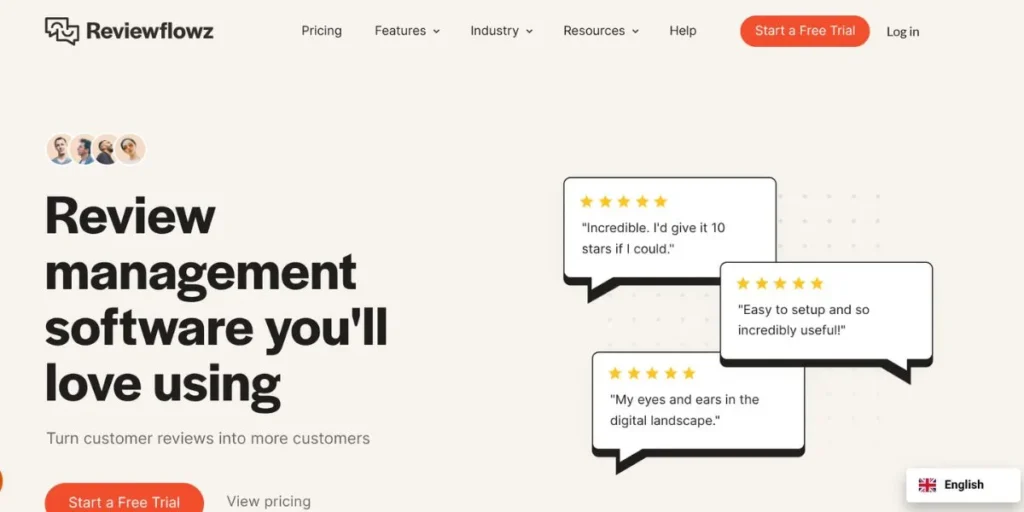
Website: https://www.reviewflowz.com/
ReviewFlowz is on the affordable side of small and medium business owners that seek simple yet effective business reputation management tools. The platform automates review gathering and provides convenient measures to track and action. ReviewFlowz aids companies to review better, observe competition and make customers satisfied with positive feedback. The solution is user friendly and can be installed fast hence it is logically suitable to companies with minimal technical expertise. ReviewFlowz has been known to assist organizations to achieve a good reputation over time and attain quantifiable outcomes.
Key Features:
- Review automation
- Competitor tracking
- Response templates
- Performance metrics
- Simple setup
Pros:
- Affordable pricing
- Easy setup
- Small business focus
Cons:
- Limited features
- Basic analytics
- Scalability issues
Pricing: $20 / month / review profile
Strategies to Improve Business Reputation
You should have clear steps in building a good brand prior to occurrence of problems and in managing problems when they occur to enhance the reputation of a company. The modern business reputation management tools assist you in performing these steps quite well on a number of channels.
- Communication: Interact with clients, respond fast to feedback, and be genuinely interested in why they are important and in making connections.
- Content: Create helpful, easy to understand information that demonstrates your expertise in your field, that answers the questions of the customers and that the business is a credible authority.
- Transparency: Be frank about the way you operate your business, own up to mistakes where necessary and accept responsibility in all dealings with customers and in the way you operate the business.
- Consistency: Be the same everywhere with your brand messages and customer experience so that what you promise is what you actually do.
- Proactivity: Anticipate potential issues to reputation early, implement preventive actions to eliminate them and strategize crisis responses in advance.
Benefits of Effective Reputation Management
Companies that strive to maintain a positive image reap large gains in most aspects of their operational enterprises. Business reputation management tools enable the companies to realize these gains and improve them over time.
- Growth: A positive reputation will attract new customers, make a company expand its market share, and introduce new markets and demographics.
- Loyalty: When individuals have a positive perception of a brand, they tend to repurchase, they remain longer with the brand and happy consumers become fans leading to word of mouth about the brand.
- Premium: Well-known brands are allowed to set higher prices, generate higher profit margins and loyal consumers are not very price-sensitive due to their confidence in quality.
- Recruitment: It is easier to hire great people with a great employer brand, reduces hiring expenses, and puts the company in a better position to have a better staff as a result.
- Investment: A good status attracts investment, enhances credit ratings and assists a company to establish partnerships and alliances in the market.
Conclusion
Good business reputation is a smart investment that yields huge benefits to all aspects of a company. Companies that concentrate on reputation achieve more credibility with the customers, become more competitive in the market and expand at a steady pace.
The internet keeps evolving and thus, news monitoring and business reputation management tools that are fast can be essential in ensuring that the brand has a positive image. Businesses can also leverage AI response generator tools to gain insights and streamline reputation-related communications.
A combination of technology, planning, and people skills should be used by the businesses to secure their name and enhance it. By successfully managing reputation, one must be proactive to work, plan, and implement appropriate tools based on the objectives of the company and market dynamics.
FAQs
What are business reputation management tools and why do businesses require them?
They are computer applications that assist companies to monitor what is said about them online. They allow companies to track the remarks, correct the mistakes, and build their reputation within the sites and review sites.
How much should a business budget for business reputation management software?
The starting point is 49 dollars per month with the basic options, and full-fledged plans may be over a thousand dollars per month.
What business reputation management software are suitable for small businesses?
Small businesses prefer simple tools such as ReviewFlowz or BrightLocal as it has the necessary features without extra complexity.
How fast can business reputation management software generate results?
Depending on the changes, results are typically realized between 3 to 6 months, but not all changes can take several weeks before being felt.
Would business reputation management tools help to avert all negative reviews?
They cannot prevent negative reviews, but they assist businesses to react fast and mitigate the cumulative consequences to reputation.
